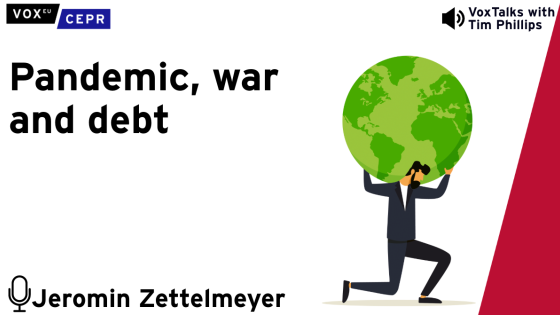The London Summit took place at a time when global trade is falling at the fastest rate since the Second World War. The WTO is now forecasting world trade to decline by as much as 9% in 2009, driven by falling global demand and a shortage of trade finance. By one set of estimates, the volume of world trade fell month-on-month by 5% in November 2008, 7% in December 2008, and a further 7% in January 2009 – a 17% decline year-on-year.1,
What can policymakers do to get trade flowing again? Global demand and financial liquidity need to be supported by concerted macroeconomic and financial action. Additional finance needs to be provided to traders so that international exchanges of goods can take place, as Marc Auboin pointed out in January on Vox. For many countries, especially developing countries, policies that could further restrict international trade must also be avoided.
Protectionism’s threat
The WTO, World Bank, and others have documented the rising pressure on policymakers in individual countries to take protectionist measures.2 This increased public scrutiny of trade policy has helped contain protectionist pressure. But protectionism continues to be a threat, and the risk will rise as the recession continues. In the absence of a clear definition of protectionism, there was a risk that G20 leaders’ commitment not to implement a certain set of "protectionist" policies would be offset by other economic policies that have an equal or greater impact on trade. The Summit therefore faced the additional challenge of building consensus that a broad range of economic policies should be examined for their unintended consequences on trade.
In the debate on Vox leading up to the Summit, and in response to a recorded increase in protectionist measures, many commentators called for a strong commitment to refrain from protectionism. Following on from the declaration at the Washington Summit that Leaders would refrain for twelve months from raising new barriers to trade and investment, many expected the London Summit to deliver a similar, and perhaps more meaningful, statement.
In fact, the London Summit strengthened the commitment made in Washington Summit in two important ways.
Leaders called for a public and transparent WTO-led monitoring process to report regularly on all measures that might potentially distort trade.
Going beyond simply measures that impact directly on trade, G20 leaders committed themselves to minimising any negative impact on trade and investment of domestic policy actions, including fiscal policy and action in support of the financial sector. This represented a strong commitment to avoid a retreat into financial protectionism, particularly measures that constrain worldwide capital flows, especially to developing countries.
Monitoring protectionism
An important step forward from the Washington Declaration is the London Summit’s commitments to an independent monitoring mechanism. The WTO has already been monitoring trade and other economic policies with a potential impact on trade, with reports to its membership in January and just prior to the Summit. The Summit formalised this process, with regular quarterly reporting to WTO members and the wider public, and tasked the WTO to work with other institutions that have greater expertise in investment and financial issues. This will lead to regular, transparent and comprehensive reporting of all policies that could have an impact on trade, putting pressure on G20 members to refrain from protectionism and consider other countries when setting their economic policies.
Trade credit
In the short term, one of the greatest threats to trade for many of the economies around the table is a lack of the financing that underpins 90% of global trade. Liquidity constraints mean banks are unwilling or unable to provide trade finance, with the shortfall lying anywhere between $100 and $300bn – a shortfall that could account for 10% of the decline in global trade.3 This problem is particularly severe for the poorest countries. There is a clear case for substantial and internationally coordinated government intervention to make additional trade credit available. Here the Summit delivered concrete results.
The G20 leaders agreed to make available funds to support at least $250 billion in trade credit over the next two years, with resources from G20 countries and multilateral development banks. Within this, the World Bank's International Finance Corporation will support up to $50 billion in trade finance over the next three years, specifically targeting developing countries. The Summit also agreed to call on national regulators to make use of capital-requirement flexibilities for trade finance. The UK, Australia, and Hong Kong have already taken action along these lines to ensure that the supply of trade finance is not restricted by capital requirement levels that is not necessarily required for this type of financing.
The Doha negotiations
Concluding the WTO's Doha round of negotiations would be a legally-binding long-term insurance policy against protectionism that would send a strong signal that the international community can work together to support open markets. It would also provide an additional boost to the global economy, estimated at over $150 billion. This is why the G20 leaders pledged their personal commitment to the round and agreed to prioritise the negotiations on the basis of the significant progress achieved so far. Many commentators on Vox have given advice on how to proceed with the round, and strong messages of political support have come from finance ministers, APEC ministers, and the international business community, among others – the onus is now on trade ministers to take this forward and deliver.
The London Summit agreed to important support for open markets and trade, including:
- Commitments to refrain from protectionism,
- Commitments to complete the Doha round, and
- Commitments to additional financing mechanisms for trade credit.
But that is not the end of the story. Commitments will need to be followed up with further action.
From commitments to results
The WTO will now work with others to provide regular, clear, and publicly available reports to raise the level of peer pressure and public scrutiny on policies affecting trade. There is an obligation on all G20 countries to rapidly and transparently declare their policies to WTO monitoring committees. To conclude the Doha round, trade ministers must now take action to deliver on leaders' commitments. It will be important for the international community to continue to build support for a Doha deal. Finally, individual countries and multilateral development banks must put in place additional trade finance measures, consistent with their international obligations, that last until market conditions recover. Together with wider action to stimulate global demand and get financial markets working again, this will help keep trade flowing through the recession and support its strong recovery as the economy returns to growth.
Footnotes:
1 Netherlands Bureau for Economic Policy Analysis
2 The World Bank study, source of the famous statistic that 17 of the G20 countries have raised barriers, was first published on Vox.



